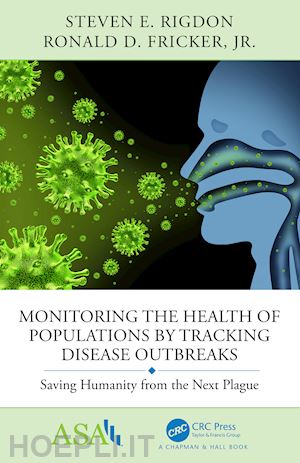With COVID-19 sweeping across the globe with near impunity, it is thwarting governments and health organizations efforts to contain it. Not since the 1918 Spanish Flu have citizens of developed countries experienced such a large-scale disease outbreak that is having devastating health and economic impacts. One reason such outbreaks are not more common has been the success of the public health community, including epidemiologists and biostatisticians, in identifying and then mitigating or eliminating the outbreaks. Monitoring the Health of Populations by Tracking Disease Outbreaks: Saving Humanity from the Next Plagueis the story of the application of statistics for disease detection and tracking. The work of public health officials often crucially depends on statistical methods to help discern whether an outbreak may be occurring and, if there is sufficient evidence of an outbreak, then to locate and track it. Statisticians also help collect critical information, and they analyze the resulting data to help investigators zero in on a cause for a disease. With the recent outbreaks of diseases such as swine and bird flu, Ebola, and now COVID-19, the role that epidemiologists and biostatisticians play is more important than ever. Features: Discusses the crucial roles of statistics in early disease detection. Outlines the concepts and methods of disease surveillance. Covers surveillance techniques for communicable diseases like Zika and chronic diseases such as cancer. Gives real world examples of disease investigations including smallpox, syphilis, anthrax, yellow fever, and microcephaly (and its relationship to the Zika virus). Via the process of identifying an outbreak, finding its cause, and developing a plan to prevent its reoccurrence, this book tells the story of how medical and public health professionals use statistics to help mitigate the effects of disease. This book will help readers understand how statisticians and epidemiologists help combat the spread of such diseases in order to improve public health across the world.











